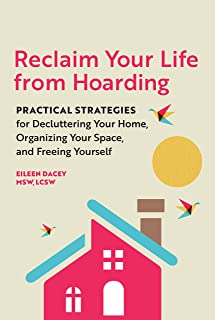Hoarding Disorder
Compulsive hoarding, also known as hoarding disorder, is a behavioral pattern characterized by excessive acquisition of and an inability or unwillingness to discard large quantities of objects that cover the living areas of the home and cause significant distress or impairment.
Cluster Number:
Wiki Number: W095
Diagnosis: Hoarding Disorder
US Patients: 2-5%
World Patients:
Sex Ratio:
Age Onset: Ages 11-15
Brain Area: anterior ventromedial prefrontal and cingulate cortices or anterior cingulate cortes and insula
Symptoms: excessive acquisition and inability to discard items covering living areas; may create injuries and adverse effects on others
Progression: frequently hoarded: books or animals; many hoarders do not recognize it as a problem
Causes: genetic and stressful life experiences; seeing human-like qualities in objects – and over-value them;
Medications: monoamine uptake inhibitors and antidepressants have shown some positive effects
Therapies: CBT-counseling which addresses motivations for collecting – and for retaining. Home visits help counselors adapt.
Youtube Video: Hoarding Disorder: Mayo Clinic Radio
Amazon or Library Book: Reclaim Your Life from Hoarding
Click the book to link or buy from Amazon.

